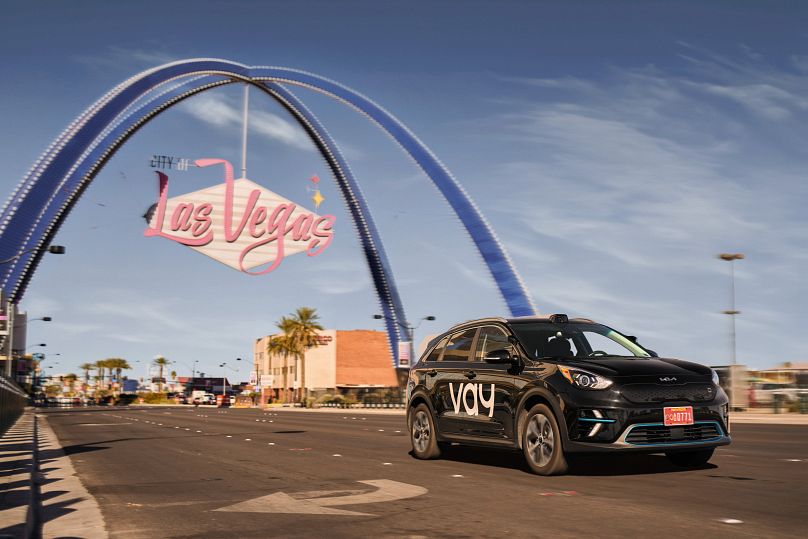A German start-up has launched a remote electric car service in Las Vegas.
At the click of a button, an electric car arrives by your feet, but no one is sitting in the driver’s seat. After opening the car door and getting settled in to drive, a female voice says: “Hello, how are you today”?
 ADVERTISEMENT
ADVERTISEMENT
 ADVERTISEMENT
ADVERTISEMENT
It’s the voice of Antonella Rosa, who drove the Kia vehicle remotely from the Vay Technology GmbH office in Las Vegas’ vibrant downtown arts district.
The German start-up has launched what could be the future of car-sharing in the US city.
The company is pitching the service as “teledriving,” which involves humans remote-controlling automobiles to get the vehicle to users and pick it up after people are finished with it.
Once the car is in your control, you can use it for as long as you want before Rosa or another Vay remote driver picks the car up, taking the hassle out of parking the car perfectly.
Back in the Vay office, a car simulator with a wheel, pedals, brakes and three screens is where Rosa drives the car.
“It’s awesome, it feels like driving a conventional vehicle,” the Vay remote driver told Euronews Next.
“We don’t drive with anyone in the car but there’s still a lot of pressure because we have to deal with our car specifically and people being around us”.
The service officially launches in Las Vegas on Wednesday (17 January) and for the moment, it will only be available around the University of Nevada and the Las Vegas Arts District.
“This is a completely new mobility service. One might call it car sharing 2.0 because it overcomes the biggest challenges of what we see in today's car sharing, which is walking to the vehicle and parking it,” Thomas von der Ohe, Vay Technologies’ co-founder and CEO, told Euronews Next.
It costs $0.30 (€0.28) per minute to drive the car and $0.03 (€0.028) per minute for stopovers, which could be used for grocery shopping.
“We believe we can really make car sharing into something that can really change, hopefully, and offer an alternative to private car ownership, in particular in large cities like Paris or Berlin or London, where private cars are standing (parked) 95 per cent of the time,” von der Ohe said.
Vay has been testing remote driving technology for more than three years in Germany but with a safety driver inside its Kia electric vehicles.
In February 2023, it became the first company to remotely drive a car without passengers in Hamburg, Germany after it received a permit.
Von der Ohe said he was working with regulators in Europe and hopes to launch the “teledriving” service commercially in the EU sometime soon.











